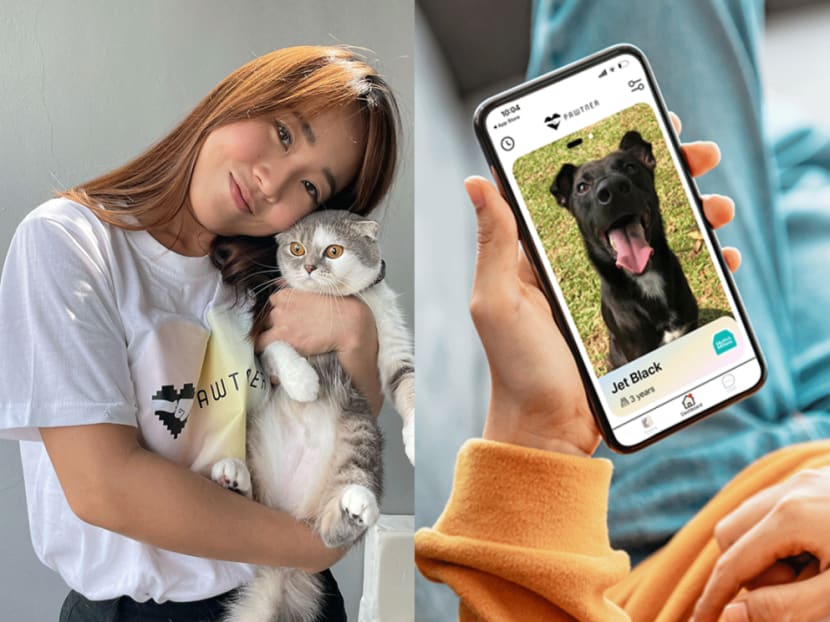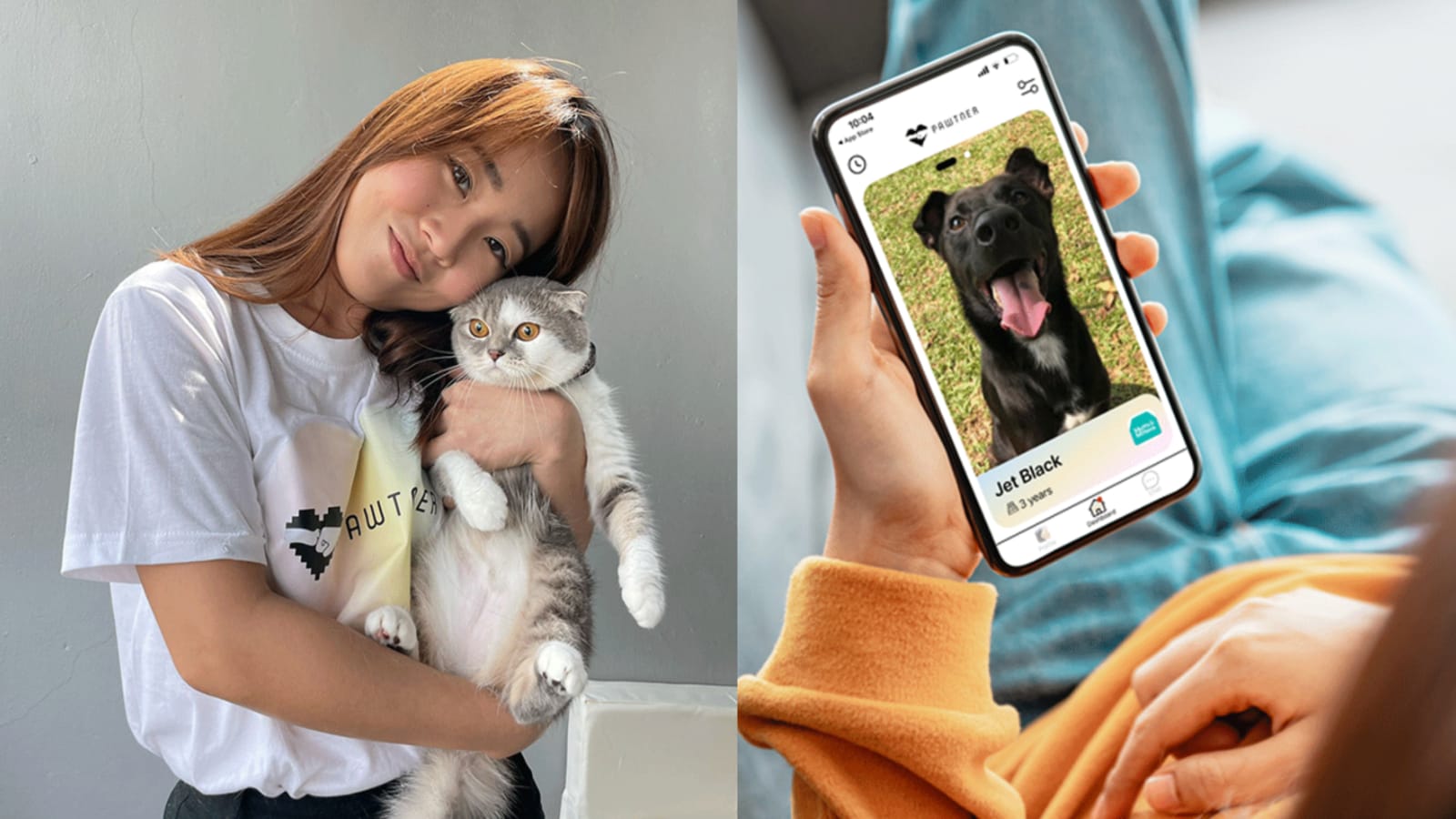
Haley Ong didn’t think adopting a cat in Singapore would be that difficult – until she first gave it a go. CNA Women talks to the co-founder of Pawtner about why she created a super-app and her ambitious goal of revolutionising the pet care industry.
Haley Ong was looking to adopt a cat in September 2020. She had been diagnosed with clinical depression and she thought a cat would be a good companion to help her cope.
“I went through multiple platforms, such as Carousel and Gumtree, and talked to shelter representatives through WhatsApp and physical walk-ins. I also went to independent rescue groups,” the 28-year-old recounted.
Despite having shortlisted a couple of cats for months, she wasn’t able to adopt one successfully. The screening process was “very repetitive”, she told CNA Women, and adopters have to “passively wait” for the shelters to respond.
To my surprise, no one is touching the digital space.
Born and raised in Kedah, Malaysia, Ong is no stranger to animal rescue work. Her parents are active rescuers, and have built their garage to feed and care for injured and abandoned street animals.
“It got me really curious… There are so many street animals out there, but why do I still face the difficulty of adopting one? I talked to many of my pet owner friends, and they told me to buy. But what if I don’t want to buy?” Ong recalled.
STREAMLINING THE ADOPTION PROCESS
Ong soon realised there was no “centralised platform” in the market to help adopters like her find a suitable pet.
“It’s a huge chaos. People were using (non-regulated platforms) such as Facebook, Instagram, WhatsApp and phone calls. Adopters that use platforms such as Gumtree and Carousel also run the risk of being scammed, as these platforms do not have an accountability policy,” said Ong.
“To my surprise, no one was touching the digital space,” she added.
As pet ownership remains on the rise in Singapore, due in part to more people working from home amid the pandemic, shelters continue to experience shortage of manpower and resources. The main barriers to adopting a pet, said Ong, include the lack of a systemic and efficient tracking platform.
To address these gaps, Ong launched online app Pawtner in July 2021 to automate the adoption process, allowing users to safely browse animal profiles at their fingertips.
Some people call us the ‘Skyscanner’ of pet adoption, because they come to the platform with the idea of browsing all the data before making a decision.
Users will have to key in their details, such as the type of home they live in, their location and lifestyle, before the app can formulate algorithm-based options that connect them to suitable matches and other pet care services.
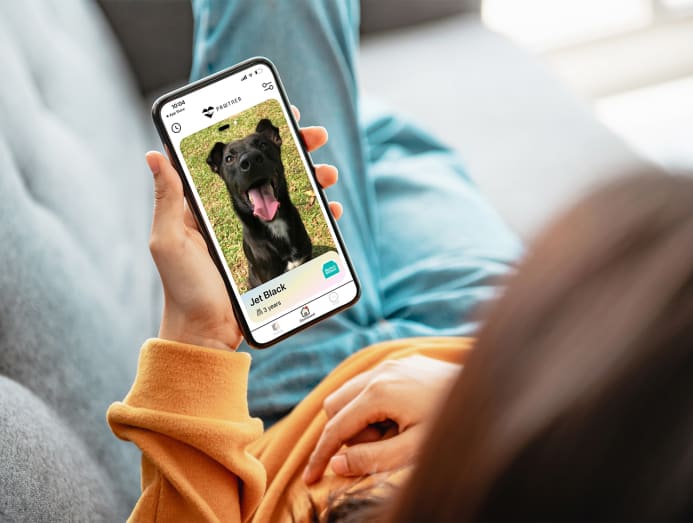
To do this, Pawtner has tied up with pet shelters and pet care retailers to prioritise the safety of the animals, as well as suitability of adopter profiles. “Some people call us the ‘Skyscanner’ of pet adoption, because they come to the platform with the idea of browsing all the data before making a decision,” said Ong.
This also means that adopters can look at an animal’s profile and the shelter’s requirements, such as housing preference, all in one place. Other important details include the shelter’s name, rescue history, vaccination records and contact number.
Ong herself managed to successfully adopt a cat while onboarding four felines into Pawtner in July last year. “My cat was one of the four – he came to me and hugged me, so I decided to adopt him. His name is Spagcatti.”
“He is a sweet cat and just having him around helps me feel less stressed,” said Ong, adding that her pet helped reduce feelings of isolation during the COVID period as well.
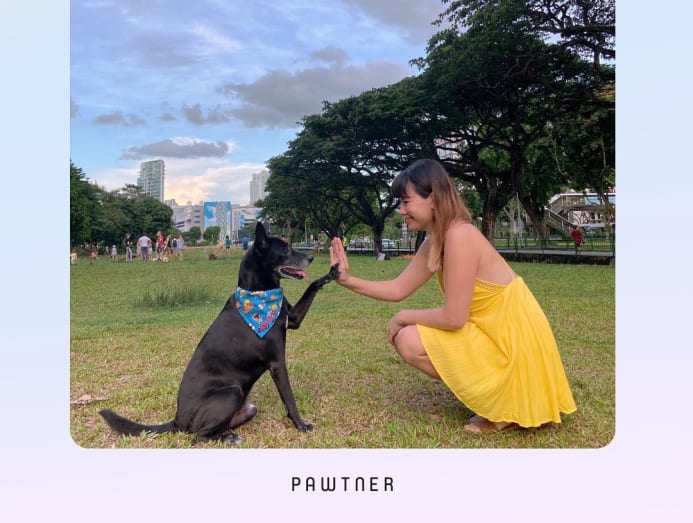
For safety reasons, it’s also important to verify an adopter’s profile and ensure that they are adopting with good intention, said Ong. This can be done by facilitating meetups, home trials and a tracking system to trace dispute cases.
BUILDING A TEAM AND EXPANDING THE BUSINESS
Seven months ahead of the launch, Ong pitched her idea to an ex-colleague, Mai Linh, who later became her co-founder.
Meanwhile, Mai Linh reached out to an engineer friend who had his own team. They agreed to join the pair, and together, they worked on a prototype and pitched the idea to local shelters. This was after about two months of research, ideation and groundwork that took them to five local shelters to understand their operations.
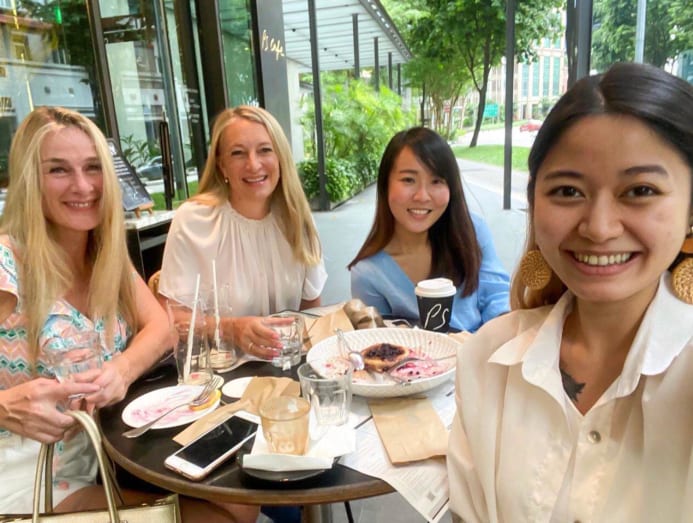
Ong recalled they were “very supportive” and “liked the idea”. Nowadays, Mai Linh works on the creative direction and design of the app, while Ong focuses on research and marketing.
Pawtner is now one year old, and business is growing. The team has been working with more than 15 shelters in Singapore, and more than five shelters in Penang and Selangor since February this year. To date, it has digitised more than 700 animal profiles across Singapore and Malaysia.
CHALLENGES OF A STARTUP: “NO TEMPLATE TO FOLLOW”
But building Pawtner wasn’t all smooth-sailing. In addition to facing initial rejections from the pet shelters, their biggest challenge was being the “first mover” in the industry.
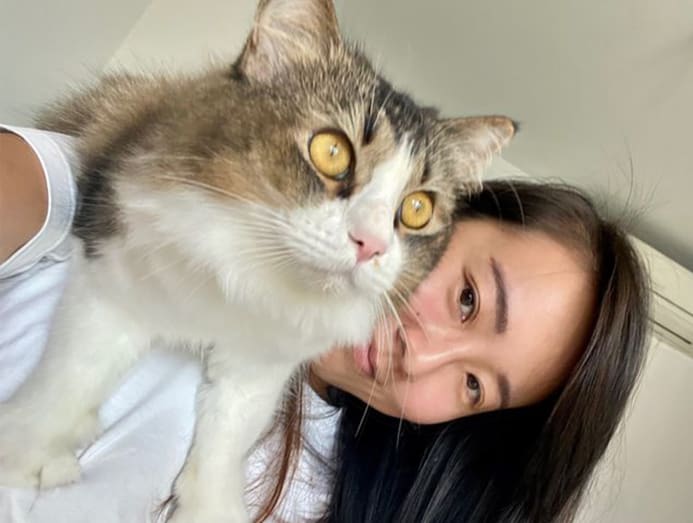
“There was no template to follow, and we needed to build it from scratch,” said Ong. “When we talk to the shelter representatives, we need to be very patient because their immediate answer was always a ‘no’ at the start. When you launch something new, people are scared of the risk,” she added.
Thankfully, things began to look up after local shelters like Society for the Prevention of Cruelty to Animals (SPCA), Save Our Street Dogs (SOSD) and Project LUNI came on board.
There was no template to follow, and we needed to build it from scratch.
Fundraising and partnership opportunities came through quickly, too – angel investors came on board just a month within launch, and e-commerce giant Shopee reached out to sponsor app users with a S$100 voucher for every successful adoption.
“That boosted our beginning and we started out strong,” said Ong.
IMPROVING ACCESSIBILITY AND INCLUSIVITY IN THE COMMUNITY
The team has no plans of slowing down, and remains ambitious in digitalising the business further. For one, they are thinking of venturing into the non-fungible token (NFT) space in the long-term.
Most recently, they collaborated with an NFT creator to create a digital replica (of the shelter animals) to boost fundraising efforts in supporting cat shelters in the region.
Providing a digital adoption certificate and travel passport for pets are also in progress, said Ong. (In Singapore, pet travel paperwork requirements include registration, vaccination and treatment records.)
“I want a trackable system – Pawtner currently tracks info such as adoption date, but it’s still lacking a digital certificate,” said Ong. The concept of NFT is like a QR code; it’s unique and will remain forever on the internet, she explained.
While digital means have allowed app users to save time, Ong understands there are seniors in the community who would struggle with the app. This includes employees at the shelter, who are often made up of seniors.
Part of the solution is to appoint someone from the shelter who’s part of the younger group to be the app manager, she said. “That’s why we are looking to expand to a web version.”
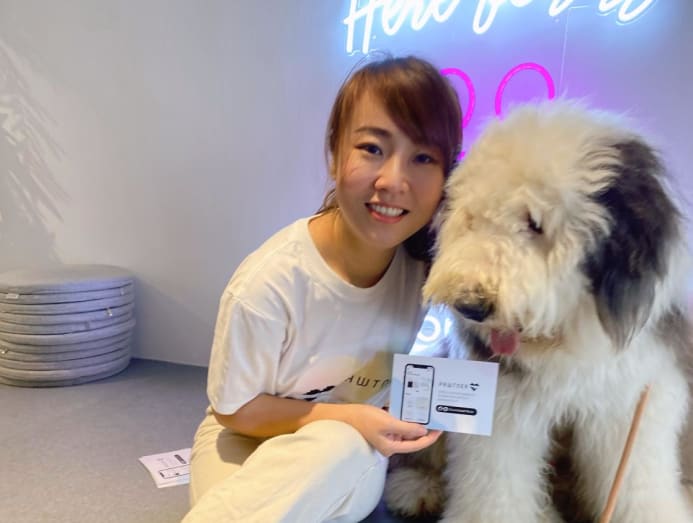
When it comes to policy change, however, Ong hopes for stricter regulations on pet sales posted on social media platforms such as Facebook. “Many of them are illegal breeders and are looking for profits. It’s dangerous and non-regulated.”
At the end of the day, raising awareness about the “adopt don’t shop” mentality takes a lot of hard work that requires strong support from individuals, businesses and the government. She’s also hoping to receive government and funding support to drive digital adoption in the pet industry.
“Some people blame the shelters, but they don’t understand the pain points,” said Ong. “So we are actively sharing the knowledge, and helping to manage expectations from the adopters.”
Remember that letting the animal go can particularly be an emotional moment for the shelter or fosterer, too, Ong said. “I felt very touched when I saw that the fosterer was very emotional when she gave up the animal. She’s been taking care of the animal for about four months. She’s very happy that she’s successfully found an adopter, but it’s still a very emotional moment.”
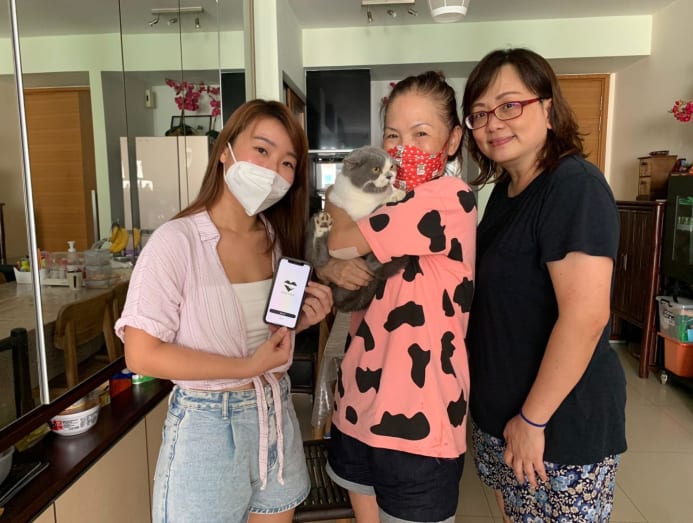
“She personally went down to the adopter’s house to make sure everything is okay, and to say a proper goodbye,” she said, recalling one instance.
“Our job is not driven by profit but by purpose. Success is about driving the digital adoptions and rehoming the animals safely and efficiently.”
CNA Women is a section on CNA Lifestyle that seeks to inform, empower and inspire the modern woman. If you have women-related news, issues and ideas to share with us, email CNAWomen [at] mediacorp.com.sg.

